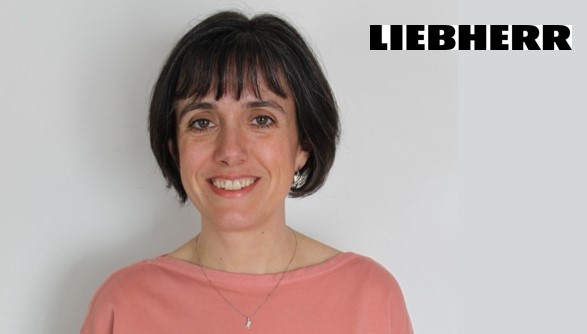Hi, my name is Karine Prince, and I am working at Liebherr-Aerospace Toulouse in France as a fuel cell system expert. Our main activity is to develop environmental control and thermal management systems for aircraft. For the BRAVA project we are developing an air supply system for fuel cell technology. My role is to ensure that the system meets the expectations in terms of performance, weight, safety, integration, but also regarding environmental constraint and that it takes into consideration all the novelties associated with a hydrogen fuel cell system.
What was your original motivation to become a researcher?
My original motivation to work in research is to contribute to innovative and creative projects, as well as to the decarbonization in aviation. I like to understand how things work, to learn about new fields of science, that is from mechanics, thermodynamics up to electricity. When looking at a topic like fuel cell system, the progress is very fast and that is exciting!
What is your (main) research area today?
I am working on fuel cell system for propulsive and non-propulsive application in aviation. This system is in close interaction with the use of a fuel cell stack.
What is the main objective of your team in BRAVA?
The main objective of our team is to develop an air supply system responding to fuel cell system specificities and to increase the maturity of technological bricks, such as for example a turbo compressor with a high-power and high voltage control unit.
What expertise and facilities does your team have to meet those objectives?
Our Liebherr-Aerospace team benefits from its vast experience gained during the development of an electrical environmental control system within the frame of previous European aerospace R&T projects like “Clean Sky”.
In the past, we also developed fuel cell air supply compressors for application in the automotive branch.
It enabled us to develop competencies in for example electrical motor design and control, turbomachinery, power electronics, aerodynamics, thermics, bearing design, mechanics, air quality or thermodynamic. We created several specific modeling and simulation tools within these projects. Furthermore, we have the capabilities to manufacture and test our equipment and systems in specific test cells that we have built ourselves.
Which aspects of your research at BRAVA do you believe are the most innovative and what unique opportunities offer BRAVA to yourself and/or your organisation?
BRAVA enable us to develop our highest-powered turbomachine so far. It is the opportunity to tackle the technical challenges associated with this size of a turbomachine.
BRAVA also enable us to interact with Airbus and universities to better understand the specificities of a fuel cell system, its integration in the nacelle, as well as safety aspects related to a high power electrical system.
How do you see the future use of the BRAVA-results and the impact of BRAVA-project in our daily lives?
These results will enable us to mature and then propose air supply system for hydrogen fuel cell aircraft. Several key technological bricks can also be used for electrical environmental control systems.
BRAVA will be an enabler for electrification of the aircraft and next generation of decarbonized aircrafts and especially fuel cell driven aircraft.

